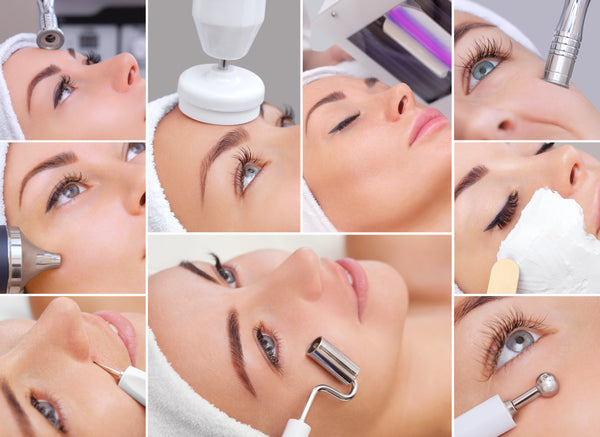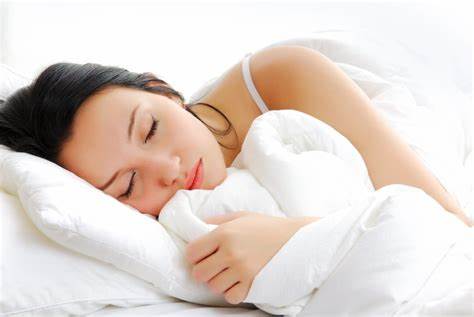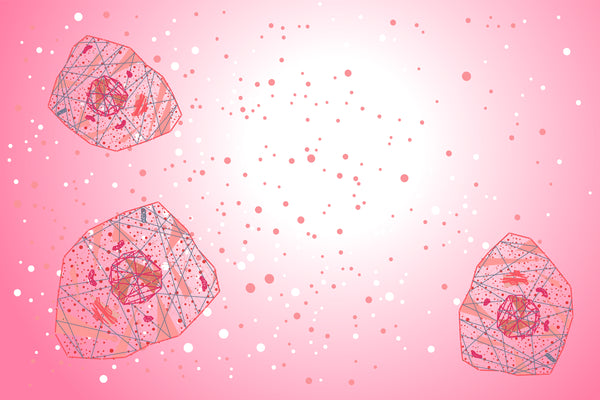Sleep is crucial for our bodies, including skin, to regenerate and repair. We have a circadian rhythm, a 24-hour period responsible for biological cycles. It is like an internal clock that regulates the wake and sleep sequences of the body. This internal clock is responsible for keeping the body’s hormone levels balanced. For example, melatonin is one hormone that increases at night signaling us to go to sleep. Continuous lack of sleep not only shows on the skin, but has been linked to aging, cancer, diabetes, obesity and immune and mood disorders. The medical community generally agrees that getting seven to nine hours of sleep a night is needed for the body to function at its optimal rate.
Hormones
Sleep helps regulate the body’s hormones; therefore, a lack of sleep sends critical hormones out of balance to cause a host of skin and overall health issues.
Cortisol
Also known as the stress hormone, cortisol is released in response to fear or stress. Levels of cortisol drop during sleep, allowing the skin and other organs to regenerate before they are heightened in the morning. The body reacts in a flight or fight response to stress or a lack of sleep by triggering cortisol. An increase in cortisol can break down collagen and elastin, leading to wrinkles and sagging skin. When cortisol levels rise, it can increase oil production and inflammation, both of which are contributing factors to acne. High cortisol can also slow down the healing process, which is important for practitioners to know when performing more invasive procedures.
Human growth hormone (HGH)
Another hormone that is affected by lack of sleep is HGH. This hormone is activated during stages three and four of the natural sleep cycle and is responsible for normal development of the skin. When the body isn’t fully rested, it doesn’t make as much HGH, resulting in harmful effects on the skin including an impaired barrier function. A compromised barrier can result in a lack of protection, leaving the skin open to irritants, microorganisms, and other pollutants. Lack of sleep can also lead to dehydration, as the barrier is meant to hold water in and our body’s hydration levels balance during sleep.
Circulation
Proper circulation is needed for nourishment and detoxification, and a lack of sleep can slow it down. Blood flow in the circulatory system delivers oxygen and nutrients to cells. Oxygen is necessary to replenish tissues of the body including the skin. A lack of oxygen plays a role in poor wound-healing and leaves the skin looking dull and lifeless. When blood becomes stagnant, dark circles under the eyes may also appear. The body’s natural ability to fight free radicals is decreased when there is a disruption to the natural circadian rhythm of the body. This leads to oxidative stress on the skin, can cause a breakdown of proteins including collagen and elastin, and increases inflammation as your body works hard to fight off these destructive molecules.
Lymphatic Drainage
The lymphatic system is a vital component of the immune system. It is responsible for eliminating toxins and waste from our bodies. The lymphatic system doesn’t have a pump like the circulatory system, so a lack of sleep combined with poor lifestyle choices, injuries or autoimmune disorders can result in a slow lymphatic response. The human body has approximately 600 lymph nodes, with about one-third found in the face and neck alone. While we are sleeping, the lymphatic system works at its optimal capacity; therefore, it is slowed down when sleep is compromised, more so if one suffers from a chronic lack of sleep. Disruption of lymphatic flow can lead to a buildup of toxins and swelling in the skin. This can cause puffiness in the face, especially around the eyes where fluid can easily accumulate. The increase in toxins can also trigger acne.
Getting enough sleep is just the tip of the iceberg when it comes to caring for the skin. It is important to use a good skin care regimen to assist the skin in regeneration and repair. What is done internally and externally while sleeping determines the state of the skin when waking up.



0 comments